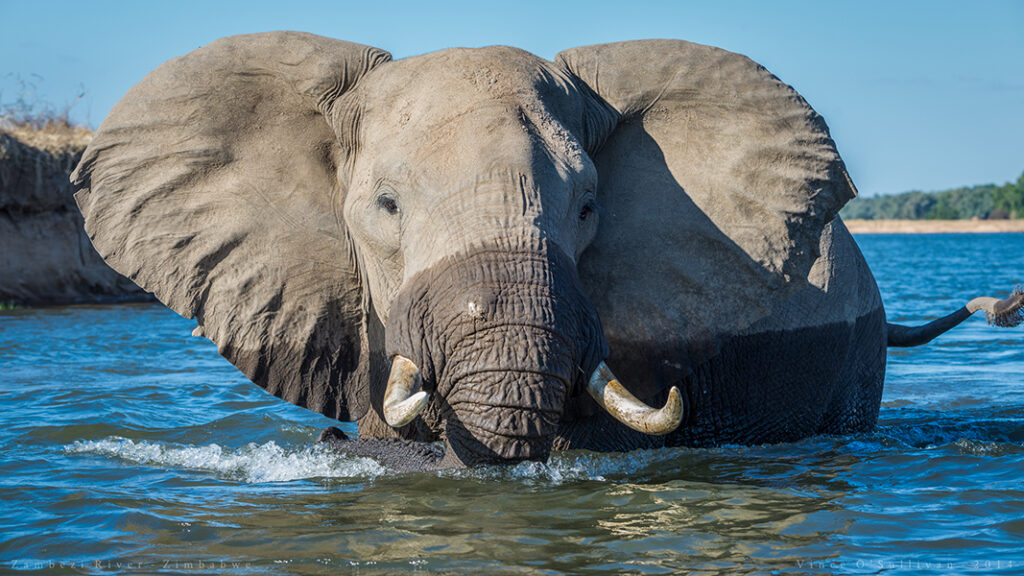
This article was originally published in The Wall Street Journal.
Congress is again considering a ban on importing hunting trophies from Tanzania, Zambia, and Zimbabwe. Republicans and Democrats alike have championed such import bans in the past. Supporters claim a ban will conserve wildlife by discouraging Americans from traveling to Africa and killing wildebeests, zebras, elephants, and other charismatic megafauna. But banning trophy hunting could do more harm than good for these species and their habitats.
When properly regulated, trophy hunting—especially by Americans—is a substantial source of conservation funding in Tanzania, Zambia, and Zimbabwe. While the management of trophy hunting can be improved in some instances, an outright ban on trophy imports could have the opposite of its intended effect, potentially placing African wildlife at increased risk of extinction from its primary threats of habitat loss and poaching. Until viable alternatives to trophy hunting are developed, Congress should abandon plans to restrict hunting-trophy imports.
As in the U.S., many African wildlife conservation agencies rely on the sale of hunting permits to fund conservation. This revenue is critical to habitat protection efforts and antipoaching programs.
A 2010 report prepared for the United Nations Food and Agriculture Organization concludes that trophy hunting has “significant links with conservation” and estimated that 21% of the revenue from the hunting industry goes to Tanzania’s Wildlife Division. Americans make up 71% of the global trophy-hunting market, so policies discouraging them from hunting in Africa are likely to undermine these countries’ wildlife conservation efforts.
But isn’t trophy hunting driving species to extinction, making any habitat-conservation benefits marginal? If such hunting is properly regulated, the answer is no. No domestic or global scientific body has identified trophy hunting as a major threat to any species. In fact, trophy hunting funds the conservation of habitat that is integral to the recovery of endangered species.
And while many African countries have weathered an elephant-poaching crisis over the past decade, antipoaching efforts funded by hunting have likely contributed to Zimbabwe and Tanzania maintaining the top-three elephant populations on the continent.
This doesn’t mean we should abandon efforts to find alternatives to trophy hunting. According to the U.S. Fish and Wildlife Service, the majority of U.S. hunters are middle-aged or older, and, with fewer people following in their footsteps, Africa’s trophy-hunting industry may be in its twilight years. As it fades, so too will the conservation benefits trophy hunting provides.
The challenge is finding viable alternatives to augment and replenish potentially lost revenue. Though some argue photo tourism should take trophy hunting’s place, it isn’t a turnkey replacement. The areas favored by trophy hunters could be too remote, hot, and dangerous to welcome the average tourist.
For Africa’s wildlife to have a future, conservationists must look beyond tourism altogether as a source of financing. The Covid-19 pandemic and resulting tourism shutdown revealed how dependence on foreign visitors leaves African wildlife conservation vulnerable to unforeseeable shocks. Future shocks could again cripple wildlife agency budgets and hinder conservation efforts.
The pandemic has been a wake-up call to develop new approaches to conservation finance capable of replacing the contributions of trophy hunting and photo tourism alike. Ideas like biodiversity offsets, which make wildlife an asset by allowing companies to mitigate biodiversity losses in one area by financially supporting conservation in another, might eventually hold promise. But for now, they remain unproven in the African context.
Trophy hunting isn’t perfect, but it is providing the revenue that helps make conservation possible. Until credible alternatives to generate significant resources for African wildlife conservation materialize, it would be foolish to take away this source of revenue.



